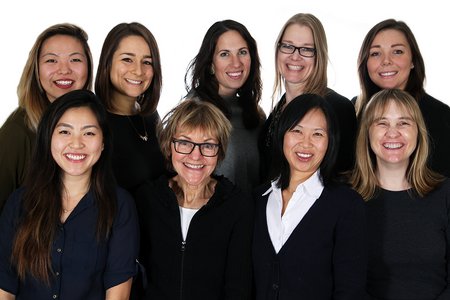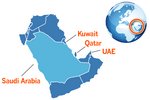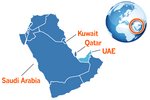Taking Your Career Beyond the Ordinary
 WHO seeks out these opportunities?Throughout history, there have been curious and restless individuals who have sought to enlarge their life through new experiences. I believe it is this same desire for adventure which has motivated the over 8,000 healthcare professionals we have recruited for the Arabian Peninsula since 1981. Today, when we ask people why they are considering a position abroad, we receive answers, such as: “I have a very good job now, but I’ve been here for 20 years, and I need to do something else”; “I’m only 26, and before I settle down, I want to see the world”; “I’ve raised three children, and now I deserve to do something for myself.” WHAT is it like working in the Middle East?Most people describe working in the Middle East as being an enormous education, both professionally and personally. The diseases are the same, but patients arrive for treatment at a later stage in the development of the conditions, therefore they are sicker. Your colleagues are from throughout the world, and therefore have different styles of working. Although the working language of the hospital is English, most of the patients do not speak English; therefore, you have to improvise in how to communicate to your patients. Many people tell us that you use your interpersonal skills to teach/motivate patients and to engage your colleagues, much more than you do in the West. Day-to-day life is generally less stressful. Housing is provided and (at least in Saudi Arabia) is located close to the hospital, thus saving a long daily commute to work. In addition to provided housing, expatriate incomes are tax-free, which leaves you with a lot of cash to contribute towards your mortgage or student loan, as well as to spend on travel, shopping, or building a nest egg. And since your colleagues, and the employees at other organizations, are all expatriates from throughout the world, it is many times easier to meet people who share, or are willing to try, your interests in ball hockey, salsa dancing, adventurous eating, etc. Speaking of food, one of the favourite weekend recreational activities of both nationals and expatriates is spending leisurely hours dining at one of the many unbelievably fabulous buffets put on by the many fancy hotels throughout Saudi Arabia, the UAE, and Qatar. It’s also an ideal place to meet expats from other hospitals or non-healthcare organizations. WHAT is the application process like?Over the past 35 years, we have recruited staff, at one time or another, for almost all of the American-standard hospitals in Saudi Arabia, the United Arab Emirates, and Qatar. Although the hospitals each have different requirements and application processes, generally speaking, a nurse, doctor, or allied health professional needs to have a minimum of two to three years post-licensing experience. Staff-level positions are almost always single-status; senior management positions are usually married-status. The application processes for jobs, for licensing, and for employment visas are as detailed as if you were applying for a position in any country outside your home country. We use the image of an iceberg: You handle the tip of the iceberg; we handle everything below the water line. In keeping with this, we have many articles, FAQs, testimonials, photos, and videos on our website. WHY travel with Helen Ziegler and Associates?There are many reasons:
HOW to contact usWe are available anytime between 7am and 6pm Eastern, and very happy to talk by telephone, email, or Skype. We do not use an answering machine except after work hours, on weekends, on holidays, or during other extraordinary circumstances, such as when the whole office goes to an afternoon Blue Jays ballgame. Most Popular |
Related |
Copyright (C) 2025 Helen Ziegler and Associates. All rights reserved.



